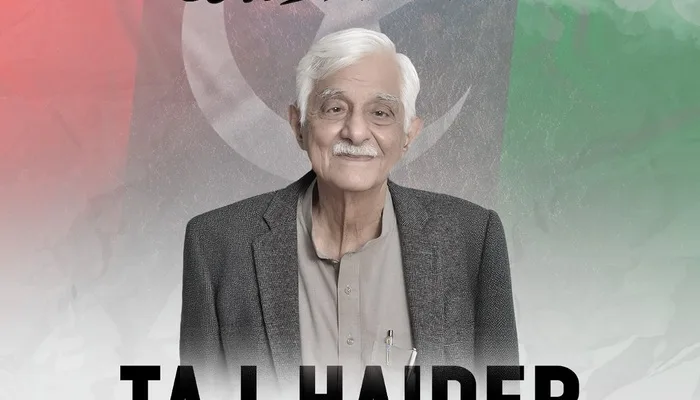
In a world where every action is magnified through the lens of social media, there are individuals whose behavior transcends mere infamy and becomes a symbol of societal decay. Natasha Danish is one such figure in Pakistan, whose actions have not only brought disgrace to her family but have also embarrassed the entire nation on an international level. Her story is a chilling reminder of the consequences of unchecked privilege, reckless behavior, and the absence of accountability.
The Downward Spiral: Reckless Actions and Tragic Consequences
Natasha Danish’s notoriety is not limited to a single incident but is the result of a series of reckless and dangerous behaviors that have caused irreparable harm to innocent lives. She became infamous for killing two people and injuring several others due to her reckless driving. Her disregard for human life was compounded by the fact that she was driving under the influence of prohibited substances. This blatant disregard for the law and for the safety of others is not just a personal failing but a reflection of a deeper malaise within certain privileged segments of society.
A Wealth of Privilege, a Poverty of Character
Natasha’s actions are emblematic of a troubling trend where wealth and privilege are used as shields against accountability. Despite causing death and injury, Natasha showed no remorse for her actions. Instead, she threatened those who questioned her, arrogantly declaring, “Tum mere baap ko nahi janty” (You don’t know my father). This statement, dripping with entitlement, highlights a disturbing mindset where the rich believe they are above the law, untouchable by the consequences that ordinary citizens would face for the same crimes.
View this post on Instagram
Natasha’s sense of invincibility was further bolstered by her family’s influence. In an attempt to shield her from the consequences of her actions, her family resorted to various tactics, including claiming that she was mentally unstable. This defense was an insult to those truly struggling with mental health issues and a desperate ploy to manipulate the legal system. However, medical reports contradicted this claim, revealing that Natasha was, in fact, mentally fit and that she was under the influence of a prohibited substance, likely methamphetamine (commonly known as “ice”), at the time of the incident.
Her Brutal “smile”.
The Brutal “smile” caught everyone’s attention even the Indian media highlighted the brutality of her “smile” after killing two innocent people on Karsaz road.
The Disgrace of a Nation
Natasha Danish’s actions have brought shame not just to her family but to Pakistan as a whole. The international community often views a nation through the actions of its citizens, particularly those who are in the public eye. Natasha’s behavior has cast a dark shadow over Pakistan, reinforcing negative stereotypes about corruption, lawlessness, and the impunity of the wealthy elite.
This case has also exposed the cracks in Pakistan’s legal system, where influence and money often hold more sway than justice. Natasha’s ability to evade immediate consequences for her actions, despite the overwhelming evidence against her, is a stark reminder of the challenges faced by ordinary citizens in seeking justice. The entire nation watched as her family used their wealth and connections to try and manipulate the legal process, further eroding trust in the country’s institutions.
A Broader Reflection on Society
The Natasha Danish case is not just about one individual’s moral failings; it is a reflection of a societal problem that extends far beyond her personal actions. It raises critical questions about the values that are being instilled in the privileged classes and the dangers of a system where wealth can buy impunity.
In a society where the rich and powerful are allowed to behave as if the rules do not apply to them, the very fabric of justice and equality is torn apart. Natasha’s actions, and the subsequent attempts by her family to protect her, have shown the ugly side of privilege—where money and connections are prioritized over human life and dignity.
The Way Forward, Accountability and Justice
For Pakistan to move forward and restore its tarnished reputation, it is imperative that individuals like Natasha Danish are held accountable for their actions. Justice must be blind to wealth and status, and the legal system must work impartially to serve all citizens, regardless of their social standing.
Natasha’s case should serve as a wake-up call, highlighting the urgent need for legal reforms that ensure no one is above the law. The influence of money and power in legal proceedings must be curtailed to restore public trust in the justice system. Moreover, this case should prompt a broader societal reflection on the values being imparted to the younger generation, particularly those from privileged backgrounds.
A Legacy of Disgrace
Natasha Danish’s story is a tragic example of what happens when privilege is allowed to run unchecked. Her actions have not only destroyed lives but have also brought shame to her family and her country. The fact that she showed no remorse for her actions and attempted to use her family’s influence to escape accountability is a damning indictment of a system that too often allows the rich to act with impunity.
As Pakistan grapples with the fallout from this case, it is crucial that it learns from this experience. Natasha Danish may have brought disgrace to her family and country, but her case also provides an opportunity for reflection and reform. It is only by holding individuals like her accountable that Pakistan can hope to rebuild its image and restore faith in its justice system.
Pakistani Celebrities and Public React to Natasha Danish Controversy
The recent Natasha Danish scandal has sparked significant backlash from Pakistani celebrities and the public, reflecting widespread outrage and frustration.
Bushra Ansari’s Disapproval
Veteran actress Bushra Ansari expressed her disapproval by calling Natasha Danish “Prado wali pagal,” a derogatory remark highlighting her reckless behavior and perceived sense of entitlement. This comment underscores the sentiment that such behavior is unacceptable and deserving of scorn.
Sarah Khan Calls for Brand Boycott
Sarah Khan has taken a firm stand by calling for a boycott of Gul Ahmed, the brand associated with Natasha’s family. Her call for action reflects a growing sentiment among celebrities that companies should be held accountable for their associations with controversial figures.
Durefishan Saleem Slams Gul Ahmed Family
Renowned actor Durefishan Saleem also weighed in, condemning the Gul Ahmed family and criticizing the frequent use of mental illness as a defense by the privileged class. She expressed frustration with how mental health issues are often manipulated to escape legal repercussions, emphasizing a need for genuine accountability.
Ali Gul Pir’s Humorous Critique
Comedian Ali Gul Pir used his signature humor to address the situation with a video that critiques the Karsaz accident. His video satirically highlights how Natasha’s legal team attempted to shield her from consequences, effectively drawing attention to the absurdity of the situation.
Humaima Malick’s Condemnation
Humaima Malick joined the chorus of condemnation, calling Natasha Danish a disgrace. In a new video related to the Karsaz incident, Natasha is seen bragging about her father’s status, further fueling Malick’s outrage and reinforcing the view that such behavior is deeply troubling.
Raza Samo’s Analytical Video
Raza Samo also created a video discussing the incident, offering his analysis and adding to the ongoing conversation about accountability and the misuse of privilege.
These reactions from Pakistani celebrities reflect a broader societal anger towards the misuse of power and privilege, demanding justice and accountability for Natasha Danish’s actions.
Follow us on Instagram, YouTube, Facebook, Whats App, and TikTok for latest updates.












